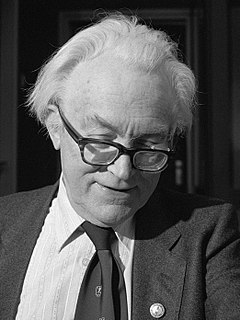A Quote by William Howard Taft
I do not believe in the divinity of Christ, and there are many other of the postulates of the orthodox creed to which I cannot subscribe.
Related Quotes
The gloomy theology of the orthodox--the Calvinists--I do not, I cannot believe. Many of the notions--nay, most of the notions--which orthodox people have of the divinity of the Bible, I disbelieve. I am so nearly infidel in all my views, that too, in spite of my wishes, that none but the most liberal doctrines can command my assent.
There are only five notes in the musical scale, but their variations are so many that they cannot all be heard. There are only five basic colors, but their variations are so many that they cannot all be seen. There are only five basic flavors, but their variations are so many that they cannot all be tasted. There are only two kinds of charge in battle, the unorthodox surprise attack and the orthodox direct attack, but variations of the unorthodox and the orthodox are endless. The unorthodox and the orthodox give rise to each other, like a beginningless circle-who could exhaust them?
While I am opposed to all orthodox creeds, I have a creed myself; and my creed is this. Happiness is the only good. The time to be happy is now. The place to be happy is here. The way to be happy is to make others so. This creed is somewhat short, but it is long enough for this life, strong enough for this world. If there is another world, when we get there we can make another creed.
In one of the Upanishads it says, when the glow of a sunset holds you and you say 'Aha,' that is the recognition of the divinity. And when you say 'Aha' to an art object, that is a recognition of divinity. And what divinity is it? It is your divinity, which is the only divinity there is. We are all phenomenal manifestations of a divine will to live, and that will and the consciousness of life is one in all of us, and that is what artwork expresses.
...the only thing that makes the Church endurable is that it is somehow the body of Christ and that on this we are fed. It seems to be a fact that you have to suffer as much from the Church as for it but if you believe in the divinity of Christ, you have to cherish the world at the same time that you struggle to endure it.
Not one of the orthodox ministers dare preach what he thinks if he knows a majority of his congregation think otherwise. He knows that every member of his church stands guard over his brain with a creed, like a club, in his hand. He knows that he is not expected to search after the truth, but that he is employed to defend the creed. Every pulpit is a pillory, in which stands a hired culprit, defending the justice of his own imprisonment.
I believe passionately that Christianity is a way of life, not a theological system with which one must be in intellectual agreement. I feel that Christ would admit into discipleship anyone who sincerely desired to follow him, and allow that disciple to make his creed out of his experience; to listen, to consider, to pray, to follow, and ultimately to believe only those convictions about which the experience of fellowship made him sure.

































